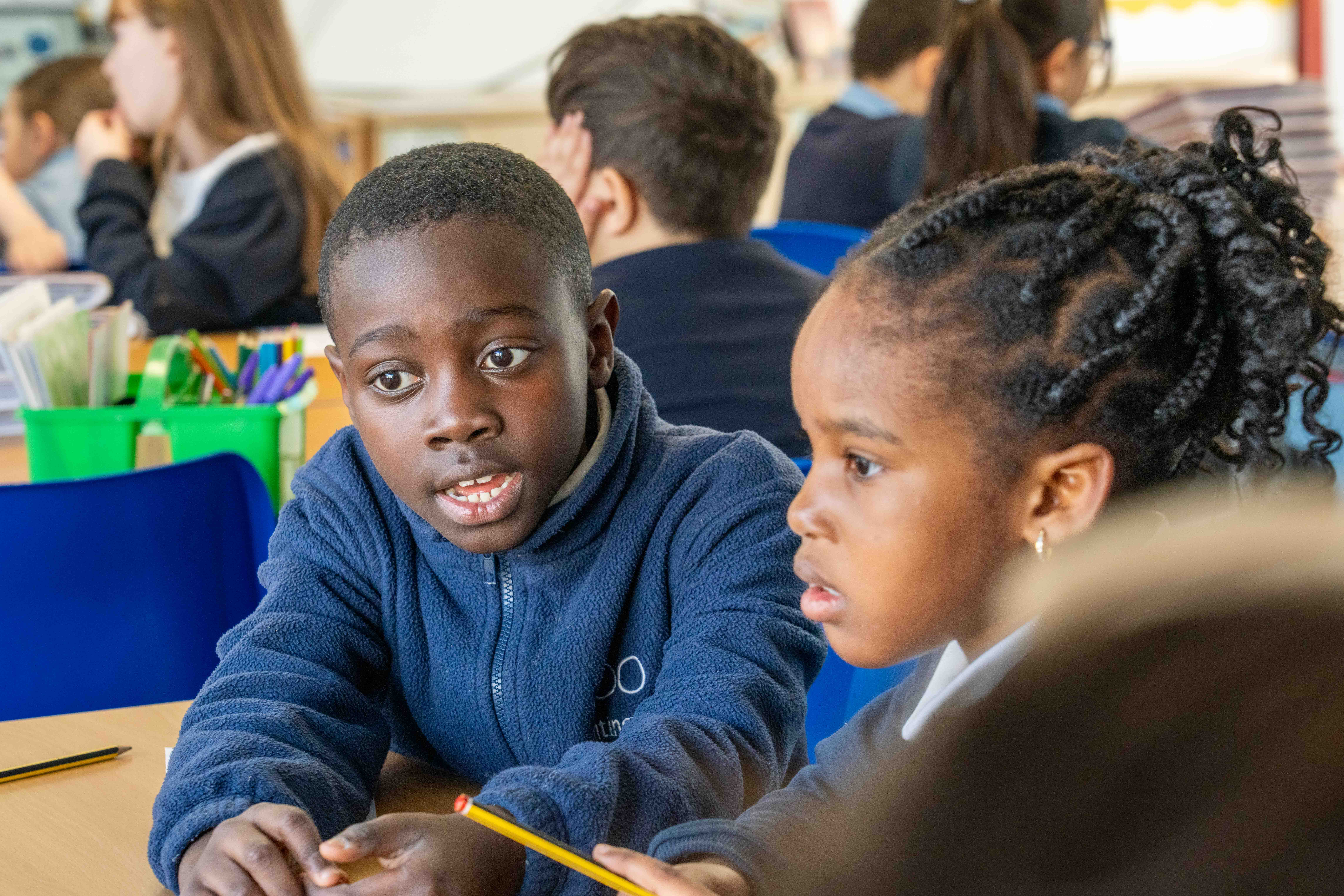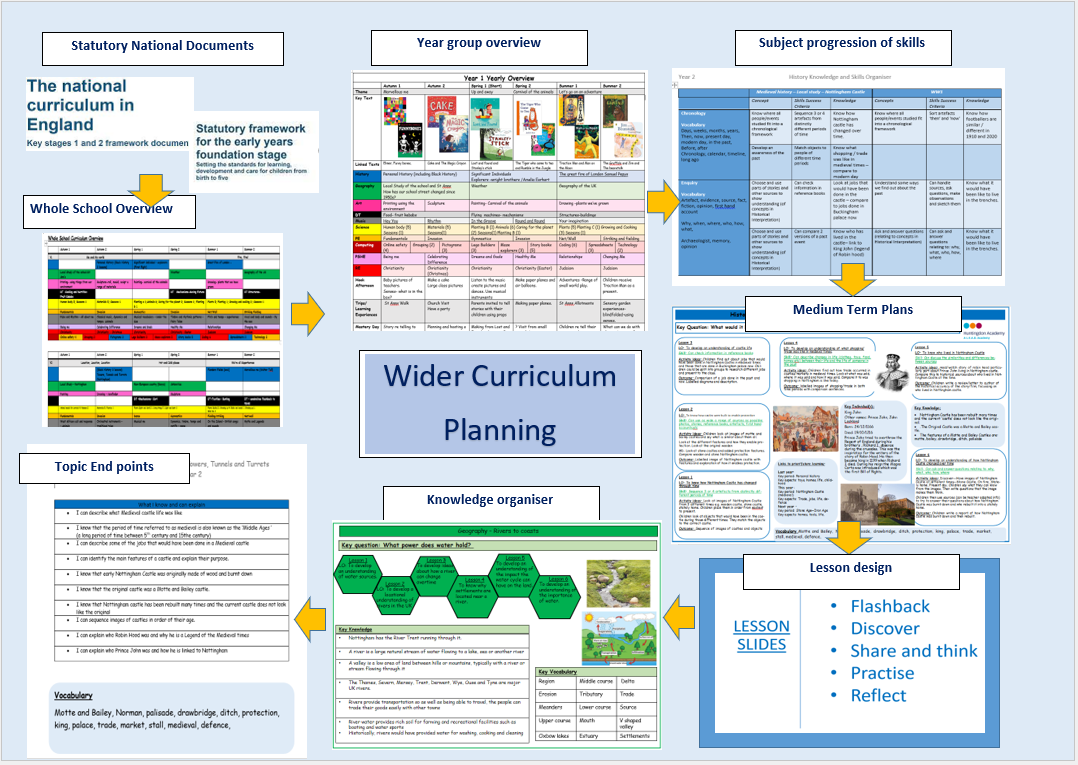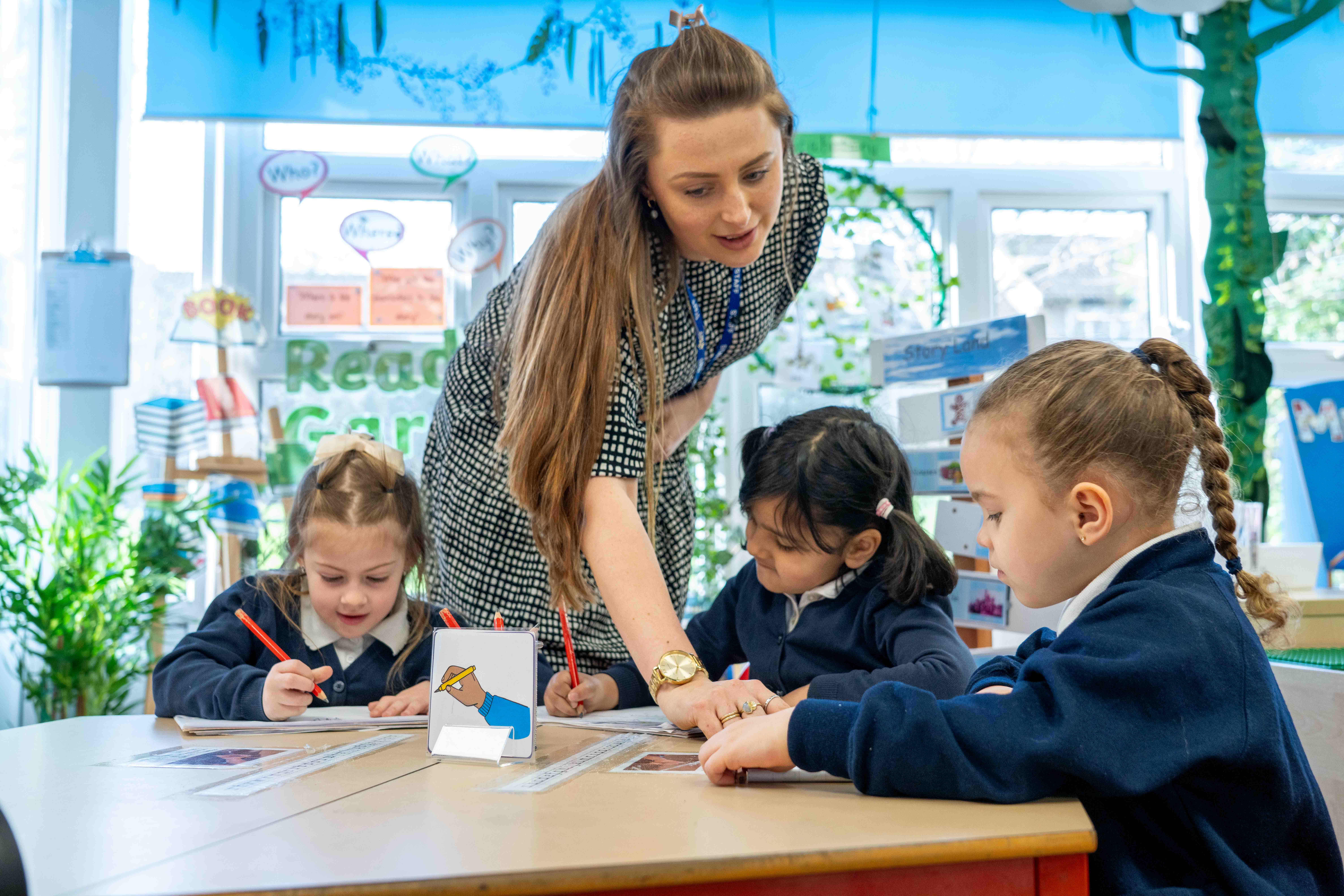

At Huntingdon Academy, we teach a carefully sequenced, knowledge-rich curriculum which aims to inspire pupils and promote excellent outcomes for all. Huntingdon’s curriculum is built for thinking.
The curriculum content has been carefully chosen by our own subject experts and is organised in a coherent way, ensuring children can build on their knowledge from year to year. In this way, the knowledge in the curriculum is cumulative, constructing firm foundations and schema from which children can progress and develop deeper conceptual understanding and subject-specific knowledge and skills over time.
Curriculum coherence ensures that teaching does not jump from topic to topic, but enables children to develop knowledge over time, as well as a love of subjects. Subject content is crucial to this approach- the rich content of the curriculum inspires children and plants the seeds for a lifetime of learning. Lessons are taught with talk and thinking critically at the heart. Children are encouraged to learn in a variety of ways.
Post-lockdown, it is vital that we ensure routines, expectation, modelling good behaviour and social interaction are at the forefront of what we do and are embedded and without these foundations re-established the effective learning environment will struggle to exist.
Our curriculum overview provides outlines the whole school curriculum for the year ahead. Download the overview for full details.

Keeping children safe a key priority in school. Safeguarding takes many forms including: protecting children from harm; preventing impairment of children’s health and development; enabling safe and effective parenting and giving children equal opportunities in life. We do many things every day in school to ensure pupils are safe including: ensuring all staff are trained in safeguarding; having clear policies and procedures in place to keep children safe; monitoring pupil attendance; ensuring a safe and healthy site; ensuring the behaviour of pupils is in line with the Academy behaviour policy and using our curriculum to teach children about risk taking, diversity, healthy lifestyles, managing relationships, online safety and much more.
A culture of safeguarding is embedded at Huntingdon Academy. We pride ourselves in knowing our children and the needs of both the individuals within our community and the needs of the wider community itself. As a result of our knowledge and experience of the challenges some our students face we recognise that they are at greater risk of:
In addition to ensuring our safeguarding procedures, displays around the academy and training are of the highest standard and ensuring staff remain vigilant, we also recognise the need to safeguard our children through education and the curriculum within school.
Safeguarding-curriculum-Year-One-and-Two